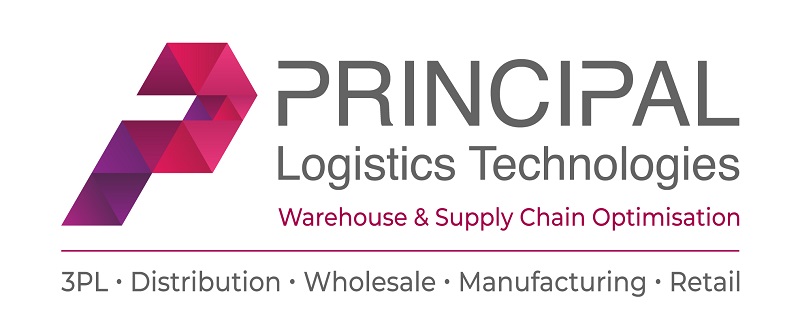
Delivering Enhancements in Pharma/Healthcare Supply Chains
Warehouse management systems WMS are pivotal for businesses, streamlining inventory control, enhancing order fulfilment, and improving efficiency. However, in the pharmaceutical industry, WMS takes on an even more critical role. It not only optimises general business operations but also addresses industry-specific challenges. These include rigorous regulatory compliance, effective cold chain management, and anti-counterfeiting measures. By harnessing the functionality of a WMS – or integrating one with an existing system such as an ERP – pharmaceutical companies can ensure product integrity, compliance, safety, and timely delivery, thereby elevating their performance to new heights.
Rigorous Regulatory Compliance: the pharmaceutical and healthcare sector is governed by strict regulations and quality standards. To maintain compliance businesses in the sector are required, among other things, to keep accurate and detailed records of the products they manufacture and supply. While it is possible to use paper documentation, the volume and variety of data involved inevitably means that computerisation offers a number of potential benefits. Using a WMS removes the need to manually enter information about products as they pass through the warehouse which eliminates the risk of introducing errors and supports greater automation to promote efficiency and reduce costs. It also enables data exchange with other applications, including those that manage compliance processes. Dublin-based Merit Pharmaceuticals, for example, deployed the ProERP Advanced Order Management application from Principal Logistics Technologies to deliver a number of enhancements to its operations that serve over 20 per cent of the market in Ireland. ProERP is scalable to deliver more than one million sales order lines per eight-hour day. Critically, the system allows the company to combine HPRA (Health Products Regulatory Board) compliance with the requirement for extensive agility, within the confines of this complex and dynamic industry sector.
Enhanced Inventory Management: efficient stock control is important for any manufacturer or distributor but there are additional pressures in pharmaceutical and healthcare. In particular, many products will have limited shelf life which makes it essential to utilise techniques such as first-expiry-first-out FEFO or first-in-first-out FIFO. In both cases the objective is to eliminate stock wastage and ensure optimum stock rotation while maximising the shelf-life and availability at the point of delivery. Other considerations include new products becoming available which creates pressure to utilise existing or older stock. More generally pharmaceutical items can have high values which, with the regulatory considerations, makes traceability essential. Modern WMS and ERP systems have the capabilities to support highly flexible and adaptable handling, storage, and distribution processes that meet these objectives. Well Pharmacy, the business that resulted from the integration of the former United Co-operative and Co-operative groups, adopted ProERP to provide a highly sophisticated and efficient solution to its evolving requirement. In addition to improving performance the solution has enabled higher levels of stock visibility and traceability across its operations.
Optimised Order Fulfilment: timely delivery of medications and healthcare supplies is critical. A WMS automates order processing and optimises warehouse functions, ensuring the correct products are delivered on time. Otherwise-identical products are often available in a wide range of pack sizes or formats. It is important to ensure efficient handling, storage, and order picking processes to ensure the correct products are despatched to customers while also making best use of available facilities, equipment, and transport. Gordon’s Chemists, Northern Ireland’s largest independent pharmacy chain, achieved this following the introduction of ProWMS. Other benefits included real-time stock visibility, better stock rotation, and an improvement in stock accuracy rates of around 25 per cent.
Effective Cold Chain Management: many pharmaceutical products require specific temperature conditions. As we have seen elsewhere (link to be included) modern WMS include features for managing effective cold chain operations. This includes, but is not limited to, effective management of storage, handling, and distribution but also enabling detailed records of the processes and recorded temperatures so that supply chain partners can create and access a complete and accurate audit.
Anti-Counterfeiting Measures: counterfeit medications pose a significant risk to patient safety and has been identified as a growing challenge across the world. A WMS helps by tracking product movements and maintaining accurate records of product identifications such as serial and batch numbers. This information can be exchanged with other business applications so that organisations across the supply chain have a complete and detailed record. New technologies such as blockchain offer an even higher level of data integrity and for this reason the pharmaceutical and healthcare sectors are at the forefront of its adoption. Unique Referencing, a patented technology developed by Principal Logistics Technologies, offers similarly high levels of performance and is offered as part of the company’s WMS products.
The supply chain requirements of the pharmaceutical and healthcare sectors are among the most demanding and exacting. Many organisations working in these areas have found that advanced WMS and ERP solutions are key to driving the ever-present demands for efficiencies and economies, innovation and service enhancements, and increasingly stringent regulatory compliance.

Comments are closed.
